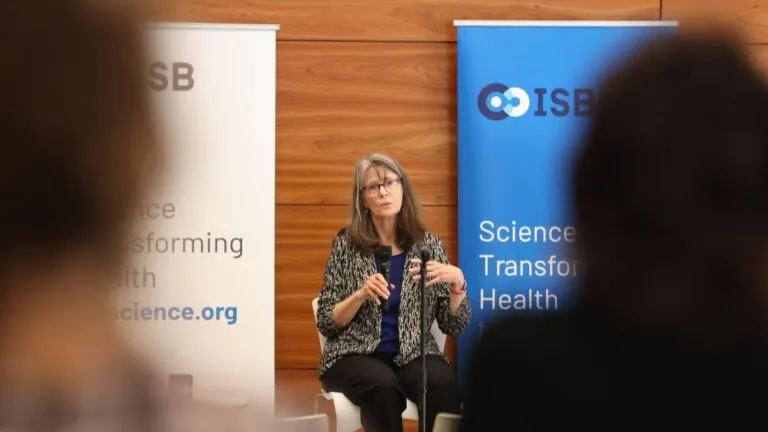Dr. Jennifer Hadlock Promoted to Associate Professor
Dr. Jennifer Hadlock – an expert in machine learning, immune-mediated inflammatory disease, and maternal/fetal health – has been promoted to associate professor. The Hadlock Lab is an interdisciplinary team that aims to accelerate translational research by integrating clinical data into systems biology at scale.

Jennifer Hadlock, MD – an expert in machine learning, immune-mediated inflammatory disease, and maternal/fetal health – has been promoted to associate professor.
“Jenn is a superb scientist. Since she joined ISB in 2018, she has published many important papers, collaborated with clinicians, established her lab, and led many federal- and industry-supported projects. We are fortunate to have her on our faculty,” said ISB President Dr. Jim Heath.
The Hadlock Lab is an interdisciplinary team that aims to accelerate translational research by integrating clinical data into systems biology at scale.
Hadlock’s goal is to improve the lives of people with immune-mediated inflammatory diseases (IMIDs) such as rheumatoid arthritis, inflammatory bowel disease, multiple sclerosis, and others. IMIDs affect over 8 percent of the population, and the diseases are frequently underdiagnosed. Individuals can experience years of delay before diagnosis, and may undergo multiple treatments before finding which ones are beneficial.
“I believe the work my lab is doing around IMIDs will benefit people who have these conditions, while also advancing our fundamental understanding of biology. I am tremendously excited about the strides we’ve made and what is to come, and I am truly honored with this promotion,” Hadlock said.
Hadlock and colleagues have published several papers, including research showing how maternal COVID-19 infection increases risks of preterm birth and other poor birth outcomes, knowledge graphs for biomedical translation and how risk factors for severe COVID-19 in hospitalized adults differ by age. Her research has been covered by a variety of news outlets, including Forbes, CBS News and MSN.
Prior to joining ISB, Hadlock earned her medical degree from the University of Washington. Prior to attending med school, she was a principal software manager at Microsoft, where she led numerous teams working on systems to validate and verify technologies used by hundreds of millions of people across the globe.


